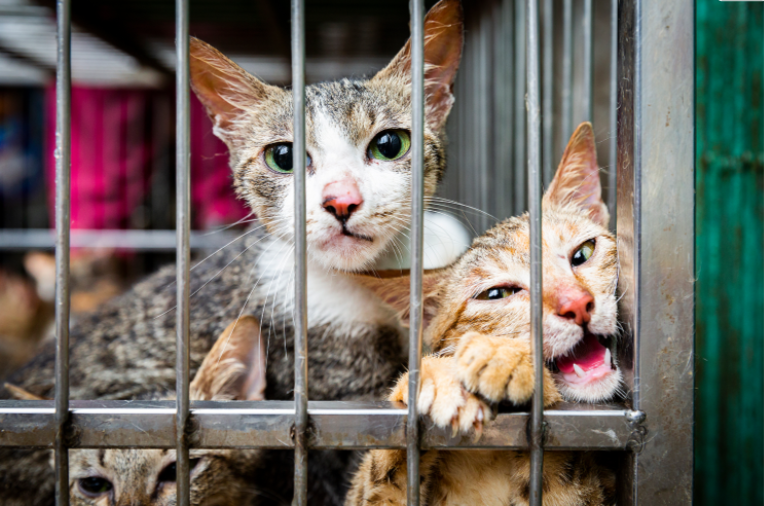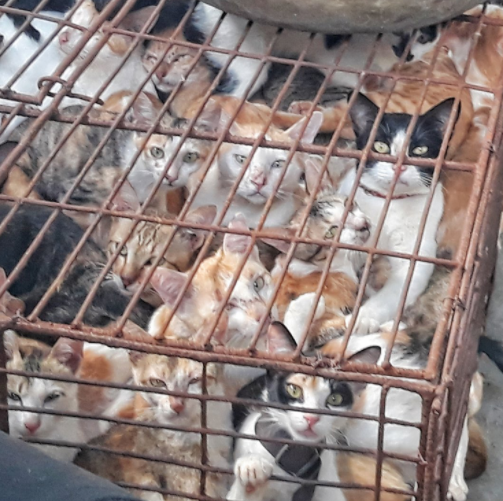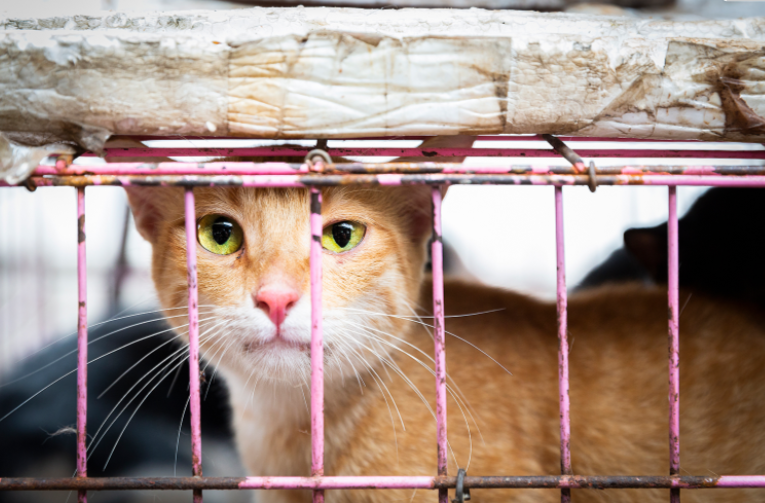 |
| The killing and consumption of cats were formerly banned in Vietnam (Photo courtesy of FOUR PAWS and Change For Animals Foundation) |
Accordingly, the FOUR PAWS and Change For Animals Foundation has conducted an investigation into the cat trading market in Vietnam and found the cats “are stolen from the streets and even from people’s homes, trafficked across the country and brutally slaughtered.”
The killing and consumption of cats were formerly banned in Vietnam. Since the crack-down of such practices in Juanuary 2020, “cat meat is in more demand than ever,” the release claims. Dishes made from cat meat are spreading in popularity across the country notwithstanding of the increasing pet onwership.
“The trade is not only a threat to animal welfare but also to human health with the risk of rabies and zoonotic diseases.”
While the demand for cat meats is creasing, according to the report released on August 12, cats have also become popular pets in Vietnam in recent years. In response, those trafficking cats for the meat trade have reportedly started stealing pets in addition to taking strays off the streets.
 |
| (Photo courtesy of FOUR PAWS and Change For Animals Foundation) |
 |
| (Photo courtesy of FOUR PAWS and Change For Animals Foundation) |
As reported by Dr. Katherine Polak, a veterinarian and head of FOUR PAWS’ Stray Animal Care in Southeast Asia, the research team discovered many cats with collars – which showed they were pets. They also met many pet owners who were desperately looking for their stolen cats.
“The authorities usually turn a blind eye to this because they are often involved in the cat meat trade, either profiting from bribes or are consumers themselves.”
Further, the cat meat trade may pose a risk to public health “due to unsanitary conditions, brutal and unhygienic treatment of animals, multi-species transport, holding and slaughtering facilities, and cross border transportation and handling.”
| Through educational work and cooperation with the responsible authorities, local communities and the tourism industry, FOUR PAWS is calling upon the governments in Southeast Asia to introduce, strengthen and enforce animal protection laws, which will bring an end to the capture, slaughter, and consumption of dogs and cats. “This will not only protect animals – but also people as well from public health risks.” |



